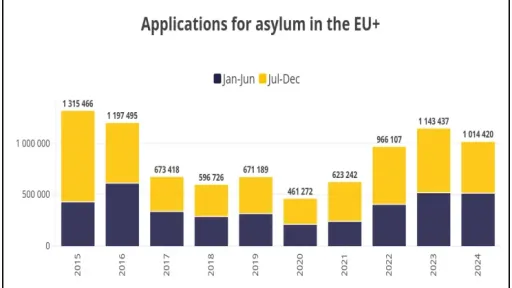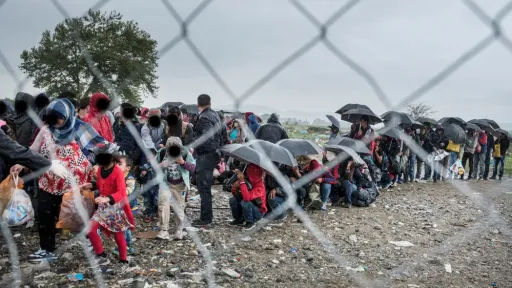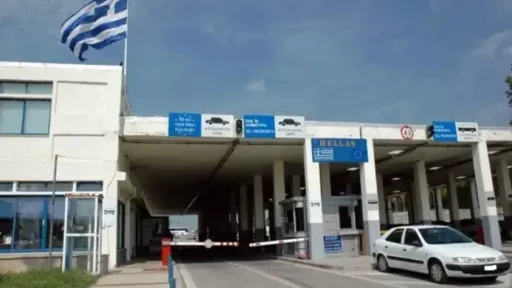EU sees drop in asylum applications in 2024 — Italy an outlier as migration pressures persist.

The European Union experienced a decline in asylum applications in 2024, with irregular border crossings also significantly reduced, according to the European Union Asylum Agency (EUAA) in its 2025 Annual Report. However, not all member states are seeing relief, with Italy standing out as an exception to the trend.
The report, presented to the European Parliament’s Civil Liberties Committee (LIBE) by EUAA Executive Director Nina Gregori, reveals that asylum applications fell by 11% in 2024 compared to the previous year — dropping to 1,014,420 from 1,143,437 in 2023.
Five countries accounted for 78% of all applications submitted in the EU and associated Schengen countries (including Norway and Switzerland):
Germany (237,000 applications)
Spain (169,000)
Italy and France (159,000 each)
Greece (75,000)
The decline is seen as part of a broader shift in the EU’s approach to managing migration, with the report emphasizing the success of stricter border controls and efforts to counter irregular migration. In particular, irregular border crossings at the EU’s external borders dropped 38%, especially along the Central Mediterranean and Western Balkan routes.
According to eunews however, Italy remains under pressure, as it continues to be a primary entry point for migrants via the Central Mediterranean — a route still heavily impacted by smuggling networks and high-volume arrivals.
The EUAA also highlighted growing concerns over the instrumentalisation of migration — the use of migrants for political leverage by third countries or non-state actors. In response, several EU countries have tightened border regimes and adopted special legislative measures to better manage sudden influxes.
While the decline in applications is a positive development for many EU states, the report cautions that the situation remains fragile. The migration landscape is still influenced by geopolitical instability, conflicts, and state actors seeking to exploit migration for strategic purposes.








